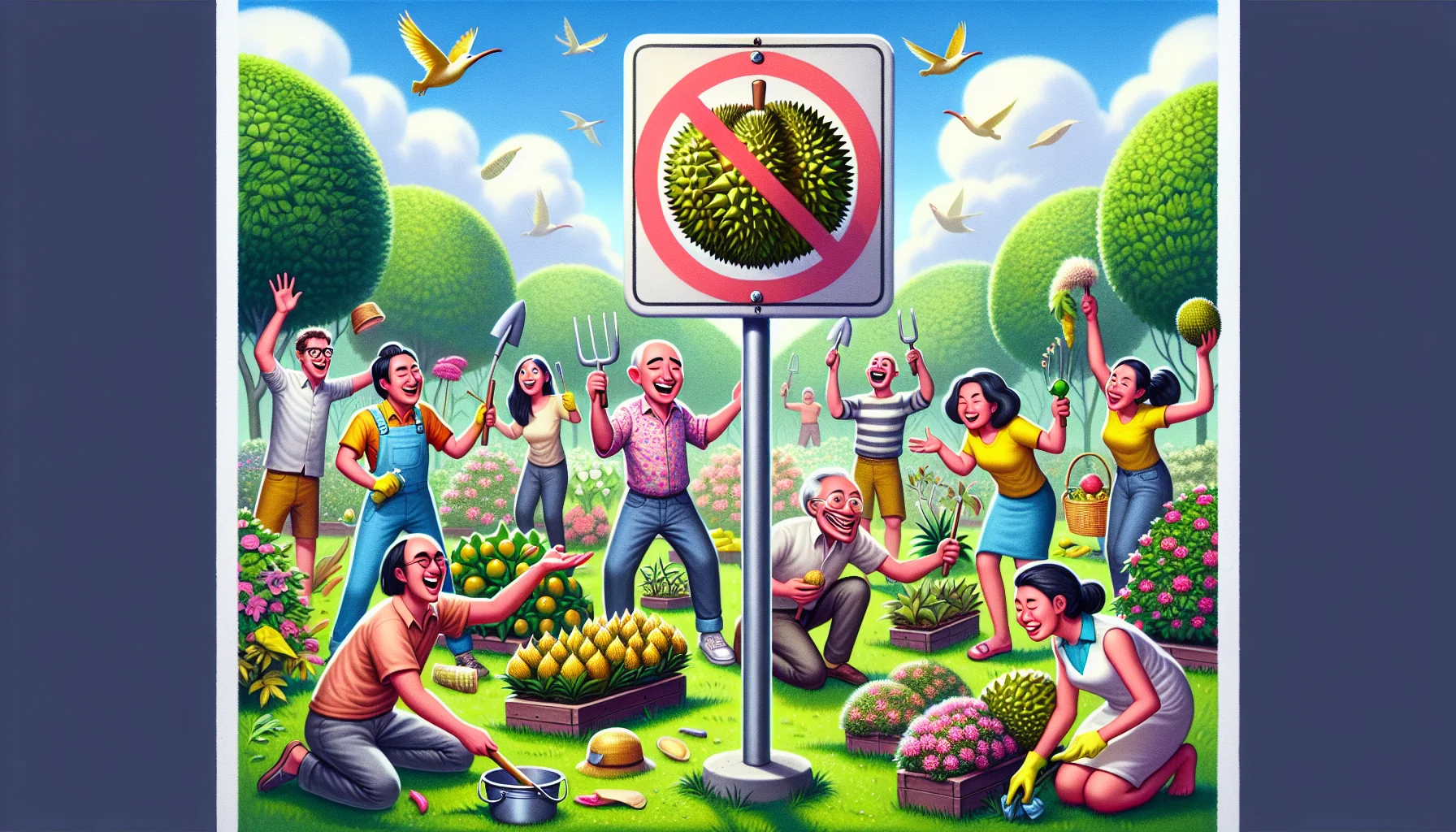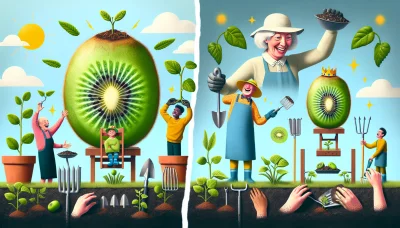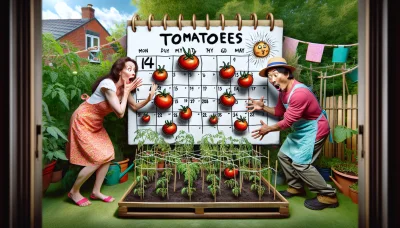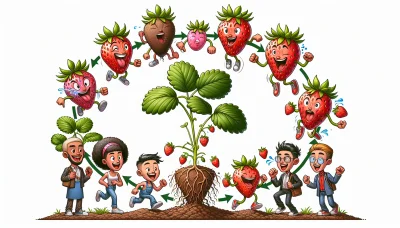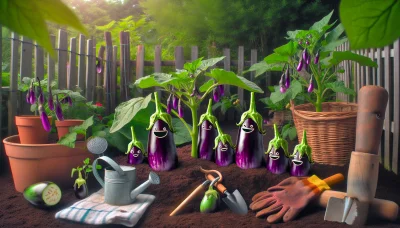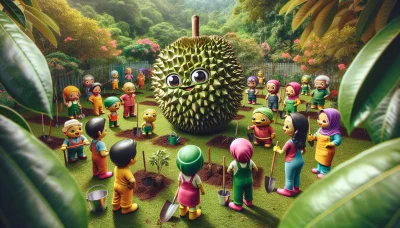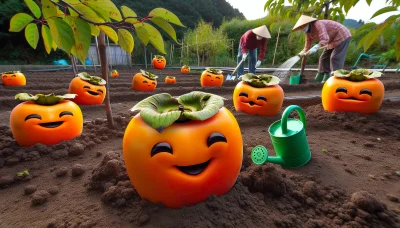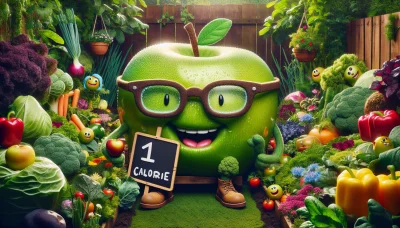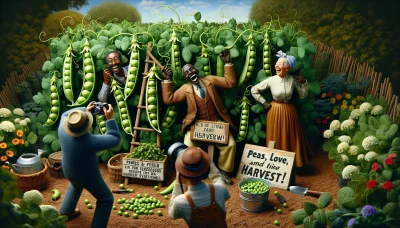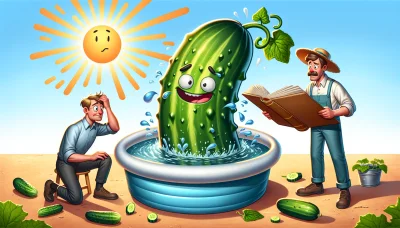Durian fruit banned Quiz
Test Your Knowledge
Question of
Understanding Why Durian Fruit is Banned
The durian fruit, often known as the "king of fruits," is notorious for its strong odor, which many people find unpleasant. This distinctive smell, reminiscent of rotten onions, turpentine, and raw sewage, has led to it being banned in various public spaces such as hotels, airports, and public transport systems across several countries in Asia and beyond. The reason behind the ban is primarily due to the discomfort it causes to others who are not accustomed to the smell or are particularly sensitive to it. Despite its controversial scent, the durian fruit is highly prized for its unique taste and nutritional value by those who enjoy it.
The Unique Characteristics of Durian Fruit
The durian fruit, often referred to as the "King of Fruits," is notorious for its distinctive, pungent smell, which has been compared to a mix of rotten onions, turpentine, and raw sewage. This strong aroma is so overpowering that it is banned in many public places in Southeast Asia. Beyond its smell, the durian has a custard-like texture with a rich, creamy taste that many find incredibly delicious, contrasting sharply with its odor. The fruit's exterior is equally formidable, covered in hard, spiky husks that require careful handling. This combination of a daunting appearance, an unforgettable smell, and a surprisingly pleasant taste makes the durian fruit a subject of vehement controversy and passionate adoration alike.
Where is Durian Fruit Banned?
- Public Transportation Systems
- Hotels
- Airports
- Airplanes
- Shopping Malls
- Some Restaurants
The Impact of Durian Bans on Gardening and Cultivation
The bans on durian, often due to its pungent smell, have had significant repercussions for gardeners and cultivators worldwide. For many gardeners, growing durian trees is not just a hobby but a vital source of income. These bans limit where durians can be grown and sold, directly affecting the livelihoods of those who cultivate them. On a larger scale, the cultivation of durian fruit, known as the "king of fruits" in many parts of Southeast Asia, faces challenges in reaching international markets. This not only impacts the economic aspect of durian cultivation but also affects cultural traditions associated with durian consumption and cultivation. The restrictions have led to a decrease in the diversity of durian available in the market, potentially impacting biodiversity and the genetic pool of durian species. Overall, the bans pose a complex challenge, intertwining economic, cultural, and environmental factors.
How to Grow Durian Fruit Despite the Bans
For gardeners intrigued by the challenge of growing durian fruit, the infamous "king of fruits," it's essential to first ensure it's legal to do so in your area. Where permitted, successful cultivation requires understanding and adapting to the fruit's unique requirements and managing its notoriously strong odor. Starting with a well-draining, fertile soil rich in organic matter is key, as durians are heavy feeders and need plenty of space to thrive. Regular watering and fertilization will support their growth, but be mindful of over-watering to avoid root rot. To manage the odor, which is most potent when the fruit is ripe, consider planting durian trees downwind of your living spaces and neighbors. Enclosing the growing area in a greenhouse can also help contain the smell. With patience and care, you can enjoy the unique experience of growing and harvesting durian fruits right in your garden.
Alternatives to Durian Fruit for Gardeners
- Mango - Known for its sweet, juicy flavor and aromatic scent.
- Jackfruit - Offers a unique taste and texture, without the strong odor of durian.
- Lychee - Produces small, fragrant fruits that are high in vitamins and minerals.
- Papaya - Easy to grow and provides a sweet, tropical flavor that many enjoy.
- Avocado - While not similar in taste, it's a versatile fruit with numerous health benefits.
- Citrus Trees (Oranges, Lemons, Limes) - Widely adaptable and offer a variety of uses in cooking and beverages.
- Fig - Thrives in warmer climates and produces sweet fruit that's great for fresh eating or preserves.
- Pomegranate - Known for its health benefits and sweet, tart flavor.
The Future of Durian Fruit in Gardening
As the world becomes increasingly globalized, the interest in exotic fruits, including the durian, has seen a significant uptick. Known for its pungent smell and distinctive taste, the durian fruit is often met with mixed reactions. Despite its controversial nature, the cultivation of durian fruit in gardening is poised for change. Given the current bans and restrictions in public spaces and transport systems in some countries, enthusiasts and gardeners are turning towards more controlled environments to grow this fruit. Advances in gardening techniques, including hydroponics and controlled atmospheric conditions, may offer solutions to mitigate the smell, making it more palatable for communities previously opposed to its presence. Furthermore, the nutritional benefits and unique flavor profile of durian continue to attract a niche market, suggesting that, despite regulatory challenges, the durian fruit will find its place in the future of gardening, evolving from an exotic curiosity to a staple in home gardens and commercial agricultural practices alike.
